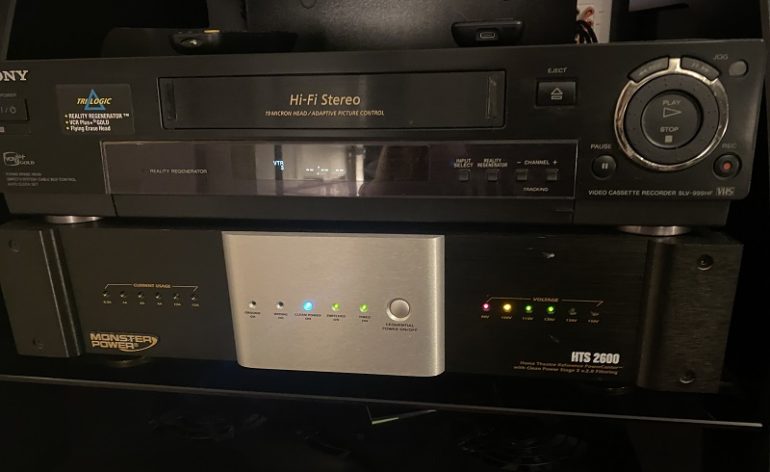Will a Power Conditioner Make Your Home Theater Sound Better
Ok, so being an enthusiast is not cheap. We love to tinker with our setups. And we love to add things to our stack! I frequent a lot of audio forums, and I see lots of setups with a power conditioner. Moreover, they tend to be VERY expensive, and the owners claim they made a “world of difference” in their setup. So, will a power conditioner make your home theater sound better? Let’s discuss.
What is a Power Conditioner?
Ok, so let’s discuss what exactly is a power conditioner. A power conditioner is usually a fancier (and more expensive) surge protector. On the back are several plugs you connect your various components, like a surge protector, and then plug the power conditioner into the wall. A power conditioner should smooth out any voltage irregularities or “condition” them.
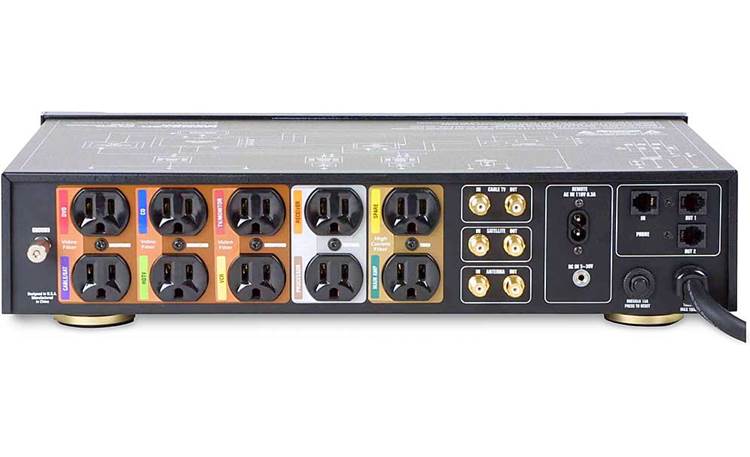
With a surge protector, all the plugs connect to a single fuse, so when you get a spike of electricity, it trips the fuse, and all plugs die. A power conditioner isolates and grounds each outlet, so if one goes, it doesn’t take out all the devices. And because each outlet is isolated, there is less chance of electrical interference from having every device plugged into the same line.
Editor’s Note: Andrew is being very optimistic here. He is assuming that all devices that are marketed as “power conditioners” actually function as advertised. In the high-end audio world, we’ve seen many devices that were called power conditioners that did little more than a power strip. Meaning, all they did was add outlets with no surge protection or voltage regulation. Before buying a power conditioner, make sure you do your research.
So What Does a Power Conditioner Do?
One of the primary functions of a power conditioner is to regulate the voltage from your wall outlet. Not every area in the world has top-notch power grids. Aging infrastructure or wiring in your walls can play havoc with your voltage. So you could see spikes or dips in voltage, which could damage your gear or put it into protection modes. We call that “dirty power.” The power conditioner smooths these out on the fly, so they don’t fry your stuff.
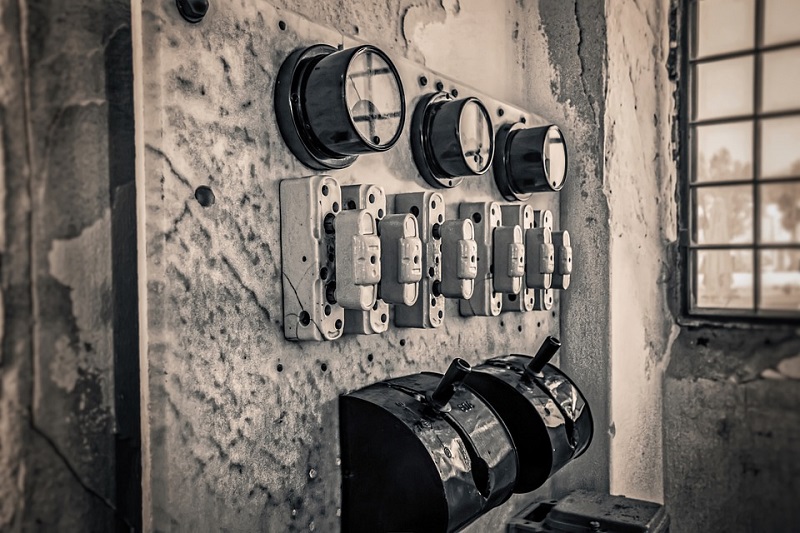
But they are also helpful for areas that are prone to lightning strikes. I can’t tell you how many horror stories I have heard from people saying that a lightning strike has killed all their gear. Because the power conditioner has built-in fuses, it will absorb the power and shut them down before it can damage your stuff. And a conditioner is faster than a surge protector. I have heard from people saying that they had everything into a surge protector, and it still fried some of their gear (though this is likely because of a flanking path rather than the surge protector being inherently inferior).
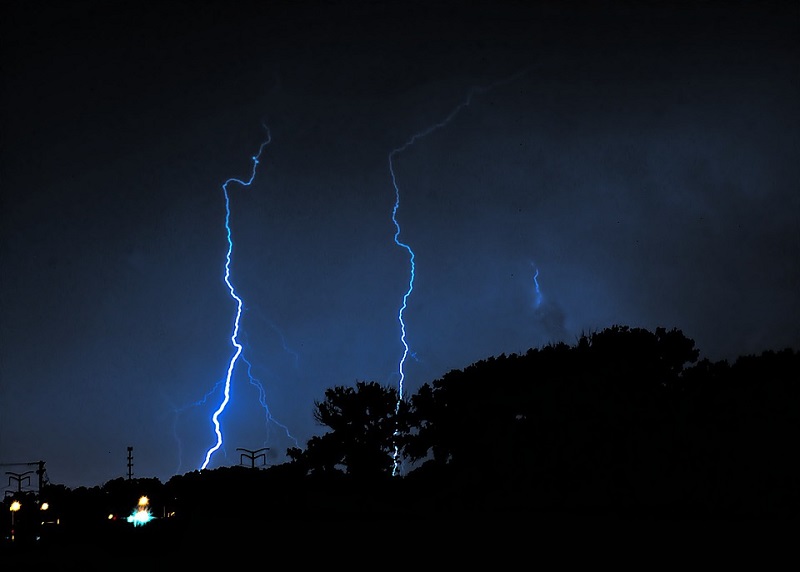
The last significant use of a power conditioner is noise filtering over your powerlines, ethernet, phone, or coax lines. So now we are talking, right? One of the primary uses of the power conditioner is to reduce noise! Take my money! Not so fast; let’s discuss this a bit further.
Power Conditioners and Noise Reduction
So I just said that one of the primary functions of a power conditioner is noise suppression, so getting one is a no-brainer, right? Well, just like most things in audio, it depends.
Power conditioners filter out electromagnetic noise from nearby devices like fluorescent lighting or motors. But they also can filter out noise from “dirty power.” Yes, dirty power can fry your gear, but it can also create static on your images or distortion in your sound. This impacts the quality of your system and your enjoyment of it. If you’ve ever seen a TV image become static when someone turned on a vacuum cleaner, you know what I’m talking about.

If you grew up with those sorts of power issues, you might wonder why your current home doesn’t seem to have them. The reason isn’t because of the devices but because building codes have changed. Those power issues were because our houses weren’t properly grounded. Now, houses are built better, and many insurance companies require owners of older homes to update their electrical panels. So, generally speaking, dirty power isn’t as common as power conditioner companies would suggest. So for most people, in most cases, a power conditioner will not make your home theater sound any better.
So Should I Buy A Power Conditioner?
Probably not. As I wrote above, there were times when running a vacuum could cause snow in an image, or be heard over speakers. But those days are pretty much behind us. Power companies and home builders have changed the requirements in grounding electrical lines in houses. The issue that power conditioners are supposed to solve is generally no longer an issue.
So in essence, companies are making very expensive products for a problem that doesn’t exist. But does that surprise you? Audiophile companies make a killing on products like DACs, expensive speaker cables, and even crystals that you place on your speakers to make them sound clearer! So it’s no surprise that they sell expensive power conditioners to us.
So I Shouldn’t Buy A Power Conditioner?
Ok, not so fast. I own a power conditioner and have no issues with line noise or dirty power. So why do I have one? Well, I have some good reasons.
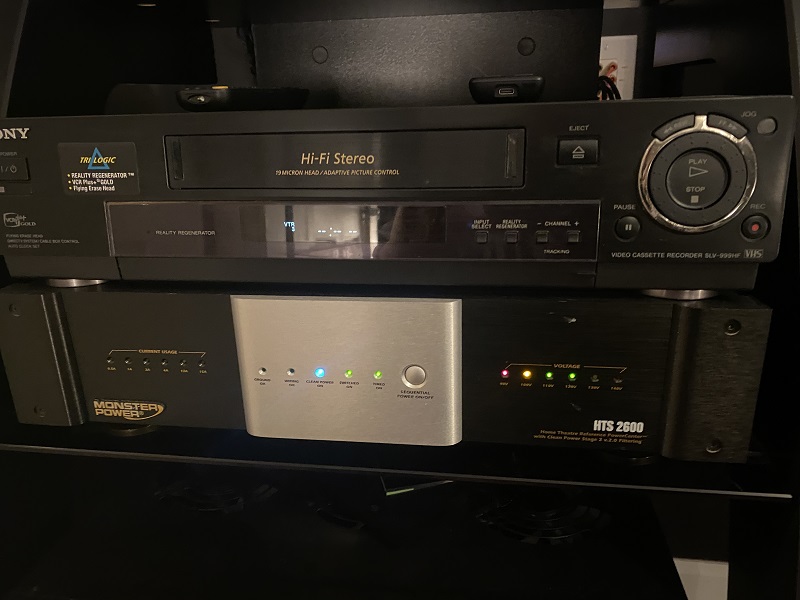
Surge Protection/Warranty
First off, every audio system should have a good surge protector. It ensures that no rogue electrical spike, dip, or lightning strike will take out our system. Plus, because each plug (generally) has its own fuse, they act much faster when a surge happens. Plus, many fuses are replaceable, so a power spike doesn’t mean it fries the whole unit. I like the fact that it’s not disposable.
Secondly, many power conditioners have warranties and insurance that will cover damage or loss if you have your gear properly plugged into the power conditioner. I have not had any surges that took out any equipment. But I have read stories of others who used the warranty and had all their gear replaced. It’s just an added layer of protection.
Wire Management
Wire management is the bane of many audio enthusiasts. Each component has a power cord, and routing them all down to a single source is so convenient. My power conditioner has labels for each plug, making it easy to know what each cord is without tracing it back. But not every power conditioner has labels.
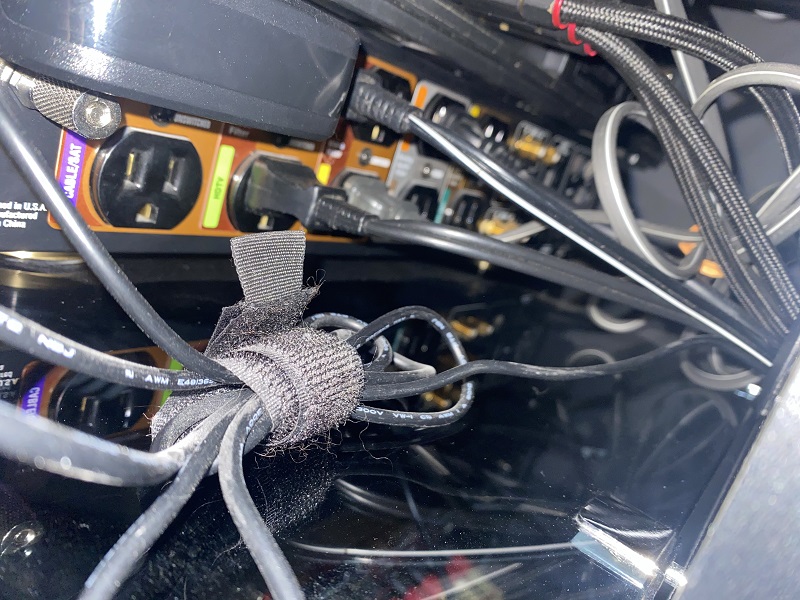
And yes, I realize that a surge protector can do the same thing for wire management. Many even have mounting holes to get them out of sight. But I have yet to find a surge protector that matches the aesthetics of a power conditioner. This leads me to my last point.
Aesthetics/Mounting Options
Let’s be honest, aesthetics play a huge part in selecting gear. My power conditioner matches my gear perfectly. It’s the same width as all of my components, and it has feet that match very well with all my components. On top of that, it’s a mix of colors (black/silver), so it can match pretty much any setup!
Plus, I can remove the feet and add rack ears. This means that if I have my gear in a rack, I can easily slide it in because it’s a standard rack size. I realize that not every power conditioner has these options. But in my experience, almost every power conditioner I have looked at has both feet and rack ears.
Alternatives To Power Conditioners
There are also some great alternatives to power conditioners. UPSs (uninterrupted power supplies) offer many of the same features as power conditioners but also add battery backup capabilities. A UPS is a must-have for projectors needing a cool-down cycle to protect the bulb. One issue is that many UPSs don’t have the same home theater gear aesthetics. Those that do, like the IOGEAR Professional Online UPS, are not as budget-friendly.
Our Take
So in most setups, power conditioners will not improve the sound in your home theater. Most of us do not suffer from dirty power or have grounding issues that will introduce noise into our systems.
But that doesn’t mean they shouldn’t be included in your system. They offer surge protection, wire management, and insurance (possibly) for your precious gear. Plus, they look damn cool in your system. Price can be a factor. Some power conditioners can cost well into the thousands. But guess what, they typically don’t offer anything more than the entry-level ones. And if you are comfortable with buying used like me, you can get one for a deep discount. I paid $60 for mine.
What about you? Do you have a power conditioner? Did it make a difference for you? Let us know in the comments.

